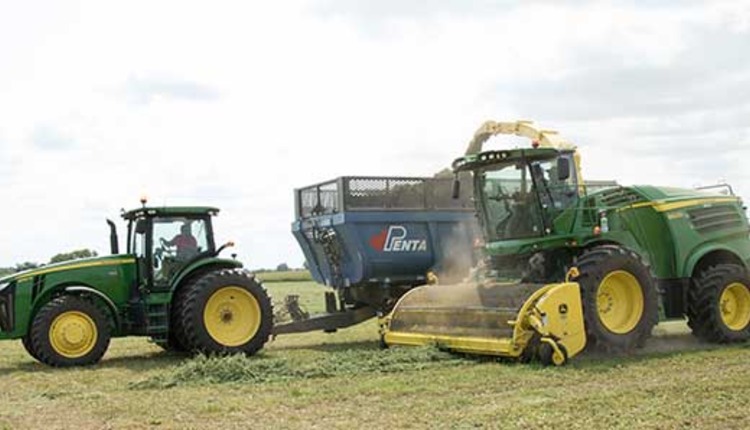
Machinery leasing can be a viable alternative to buying but there are some important aspects to consider before making a final decision. According to Tina Barrett, executive director of Nebraska Farm Business Inc., both farm balance sheet and tax implications need to be evaluated before a final decision is made. These were outlined in a recent edition of Nebraska’s CropWatch.
Barrett lists the advantages of a machinery lease as follows:
· Leasing may make a positive change to the balance sheet if the farm has equity in the asset being replaced by the leased item. There may also be an improvement in the current ratio and working capital of the farm by removing debt from the balance sheet.
· Leasing will eliminate an asset that depreciates. Though recent trends have shown a slowdown in the market value depreciation of used equipment, this is likely to change as the price of used equipment begins to drop.
· A beginning or small acreage farmer may find leasing more attractive than buying. The debt load is reduced with leasing and there isn't the large ownership cost to spread over a modest number of acres if a machine is purchased.
Among the disadvantages of a lease, Barrett notes:
· Though tax law allows for rental or leasing payments of farm assets as “ordinary business expense,” it also is clear as to what is not considered a lease. In many cases, what is perceived as a lease is actually a conditional sales contract in the eyes of the Internal Revenue Service. Barrett explains, “A true lease will not have an equal payment as the buyout, there won’t be a stated interest rate, and you won’t gain any equity in the asset.”
· If a new leased asset is replacing the current asset, there may be a deferred tax gain on the sale of the owned machine. The tax implications can be significant in some situations.
· Leasing doesn't allow for the building of equity in major pieces of equipment. “Operations that can get ahead of the debt load and build equity in equipment will have that net worth and eventually improve cash flow for not having to make those debt payments,” says Barrett.

